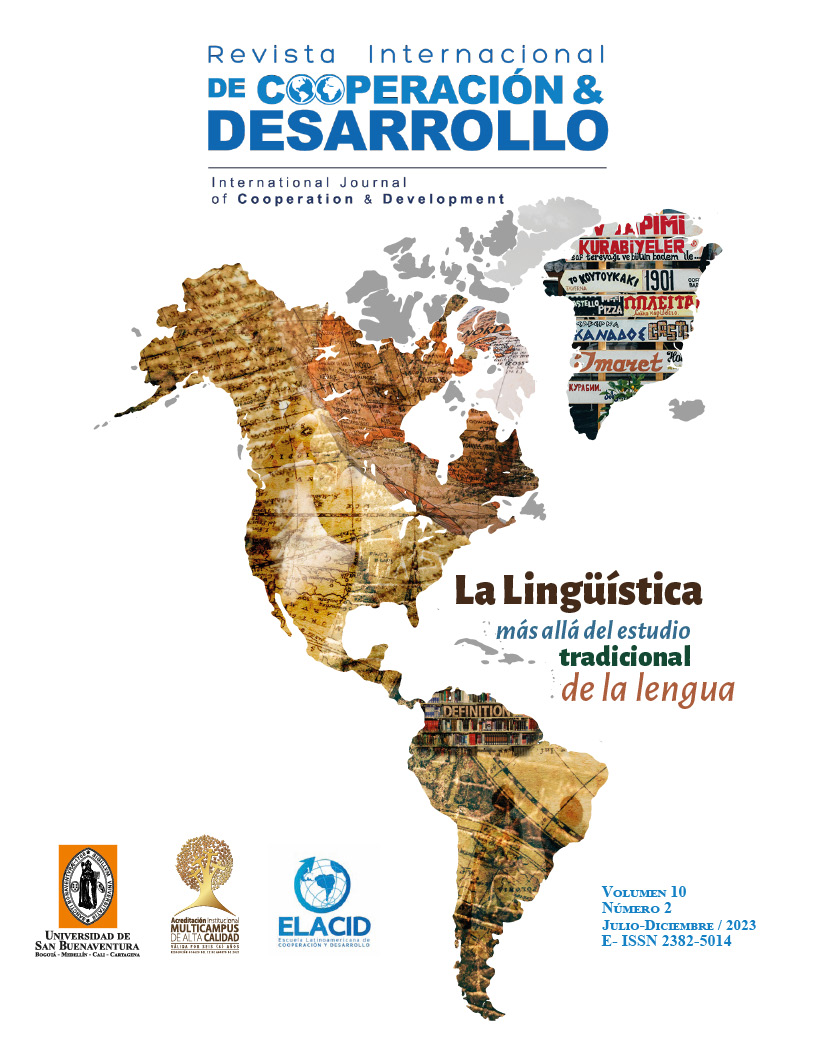INTERNATIONAL JOURNAL OF COOPERATION AND DEVELOPMENT
Assignment of Rights
Authorization for reproduction, publication, communication and distribution of a literary, artistic or scientific
Work.
I , ____________________________________________, author of the book and / or article , of legal age , resident of the city of _________________ , identified with citizenship / passport n° ______________________ issued on _______________________, in exercise of his physical and mental faculties , part henceforth be called the AUTHOR , supports the following authorization to the reproduction, publication, communication and distribution of a work, perform the following terms:
1. Regardless of current legal regulations due to the linking of the parties to this contract, and any kind of legal presumption , the parties agree that the AUTHOR authorize ( name of the publisher ) to reproduce , publish , communicate and distribute the material referred to in the International Journal of Cooperation and Development of the University of San Buenaventura.
2. Such authorization lies in particular on the copyright of the work, by any means known or unknown, publication of the work, distribution of the work , either directly or through third parties for purely educational purposes.
3. AUTHOR agrees to report and declare the existence of this authorization and to preserve the right of the International Journal of Cooperation and Development of the first publication of the work.
4. AUTHOR declares that the article is original and that it is his sole creation, no impediment of any kind exist for the authorization he is doing, besides being responsible for any action claim, plagiarism or other type of claim that might arise about .
5. Such permission is free of charge.
6. Moral copyright in the article are solely the AUTHOR and the University of San Buenaventura expressly agrees to recognize and respect them rigorously.
The Author and / or AUTHORS
SIGNATURE
Abstract
This article presents the results of a research study aimed at analyzing the use of memes as a pedagogical resource to strengthen critical reading skills in eleventh-grade students at an educational institution in Cartagena. The study begins by identifying the issues related to critical reading through a reflection phase. Subsequently, the design and implementation of a didactic strategy based on comprehension and interpretation problems are presented. Techniques and data collection instruments such as interviews, a diagnostic test, didactic sequences, and observations were used for this purpose. The methodology employed was qualitative, interpretive, and sociocritical research-action. It was structured into three phases: reflection, planning and execution, and evaluation of results, with the aim of addressing the proposed objectives. Different methods of analysis were used to examine the information collected during the reflection phase. In conclusion, significant contributions were found in the implementation of the proposed strategy, particularly in expanding students' critical, comprehensive, and analytical perspectives on the use and purpose of memes, which may result in improved performance in national exams that involve the analysis of non-linear texts.
References
Cisneros, M., Olave, G. y Rojas, I. (2013). Alfabetización académica y lectura inferencial. Ecoe.
Cisterna Cabrera, F. (2007). Métodos de investigación cualitativa en educación. Guía teórico-práctica. Concepción: Universidad del Bío Bío. https://www.academia.edu/28495730/FRANCISCO_FRANCISCO_FRANCISCO_FRANCISCO_CISTERNA_CABRERA_CISTERNA_CABRERA_CISTERNA_CABRERA_CISTERNA_CABRERA.
Dawkins, R. (1993). El gen egoísta. Barcelona: Salvat. Recuperado de https://www.uv.mx/personal/tcarmona/files/2010/08/DAUKINS-1989-EL-GEN-EGOISTA.pdf.
Gómez, B. R. (2003). Aportes de la investigación-acción educativa a la hipótesis del maestro investigador: evidencias y obstáculos. Educación y educadores, (6), 91-104. https://www.redalyc.org/pdf/834/83400607.pdf.
Instituto Colombiano para la Evaluación de la Educación (ICFES). (2022). Informe nacional de resultados del examen Saber 11° 2021. https://www.icfes.gov.co/documents/39286/1689945/Informe_nacional_de+resultados_Saber11_2021.pdf/68ccc718-dc51-71de-5693-bb907477fa87?t=1655481600171.
Instituto Colombiano para la Evaluación de la Educación (ICFES). (2023). Niveles de desempeño prueba lectura critica. https://www.icfes.gov.co/documents/39286/10065230/Niveles+de+desempe%C3%B1o+Lectura+Cr%C3%ADtica+Saber+11.%C2%BA+2022.pdf.
Ministerio de Educación Nacional – MEN (2018). Cuadernillo de preguntas Saber 11 °.
Restrepo Pérez, K., Aragón, A. y Martínez, A. (2019). El Coronel sí tiene quien le lea: Cooperación internacional. Revista Internacional de Cooperación y Desarrollo. 6(2). 87-107. DOI: 10.21500/23825014.4370
Sampieri, R. H. (2018). Metodología de la investigación: las rutas cuantitativa, cualitativa y mixta. McGraw Hill México.
Sarmiento Sequeda, F. y Vargas González, I. (2020). La Potentialité des plateformes virtuelles: un défi dans l’enseignement de l’écriture en FLE. Revista Internacional de Cooperación y Desarrollo. 7(1).156-165. DOI: 10.21500/23825014.4691
Unzueta Morales, S. (2011). Algunos aportes de la psicología y el paradigma socio crítico a una educación comunitaria crítica y reflexiva. Revista Integra Educativa, 4 (2), 105-144. http://www.scielo.org.bo/pdf/rieiii/v4n2/v4n2a06.pdf.
Vain, P. D. (2012). El enfoque interpretativo en investigación educativa: algunas consideraciones teórico-metodológicas. Revista de educación, 4 (4), 37-45. https://docs.google.com/viewerng/viewer?url=http://fh.mdp.edu.ar/revistas/index.php/r_educ/article/viewFile/83/146.
















